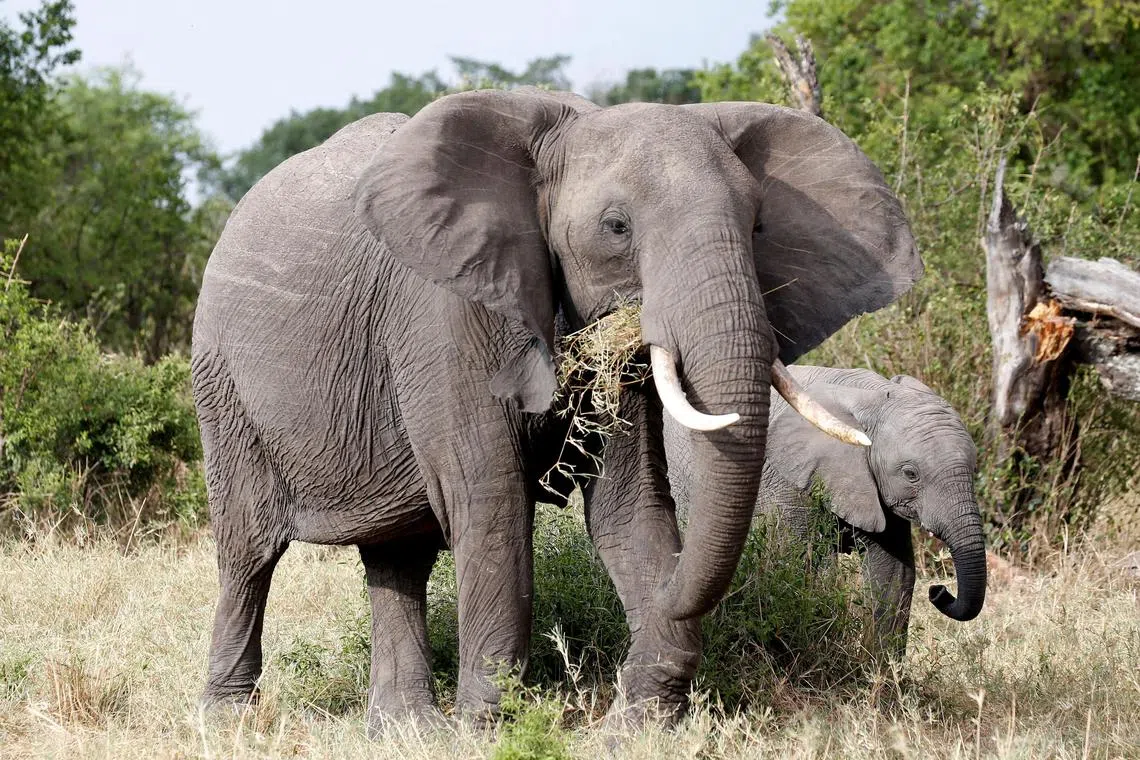Elephants may die younger because of climate change, study says
Sign up now: Get ST's newsletters delivered to your inbox

Hotter temperatures and decreased rainfall increase stress on older elephants by reducing the amount of food and prompting migrations.
PHOTO: REUTERS
NEW YORK – The effects of climate change may lead to the premature death of elderly African elephants, a study shows.
Hotter temperatures and decreased rainfall increase stress on elephants older than 40 by reducing the amount of food available and prompting migrations, according to a modelling study based on 50 years of data in the Greater Virunga region of East Africa. The risks add to the threat of poaching and an increased conflict with humans as their habitats diminish.
The death of older elephants, which can live to between 60 and 70 years old, reduces the number of reproductive animals and weakens the genetic base of herds, authors including Wildlife Conservation Society’s Simon Nampindo said in the study. The fatalities also deprive younger pachyderms of guidance from older and wiser animals, leading to erratic behaviour, they said.
“Climate change will affect the quality and condition of suitable habitat for elephants,” Dr Nampindo said in a response to a query. That will diminish “food resources available to elephants, triggering them to move longer distances in search of food and water”, he added.
The study is applicable across Africa, where about 415,000 of the animals live. Botswana and Zimbabwe boast the world’s biggest populations, according to Dr Timothy Randhir, from the University of Massachusetts, who worked on the study.
A drought at the end of last year linked to the El Nino weather phenomenon forced a large migration of wild animals from Zimbabwe’s largest national park. Nearly 200 elephants died due to water shortages as a result of hot temperatures, the nation’s wildlife authority said. El Nino caused drier weather in Southern Africa. BLOOMBERG


